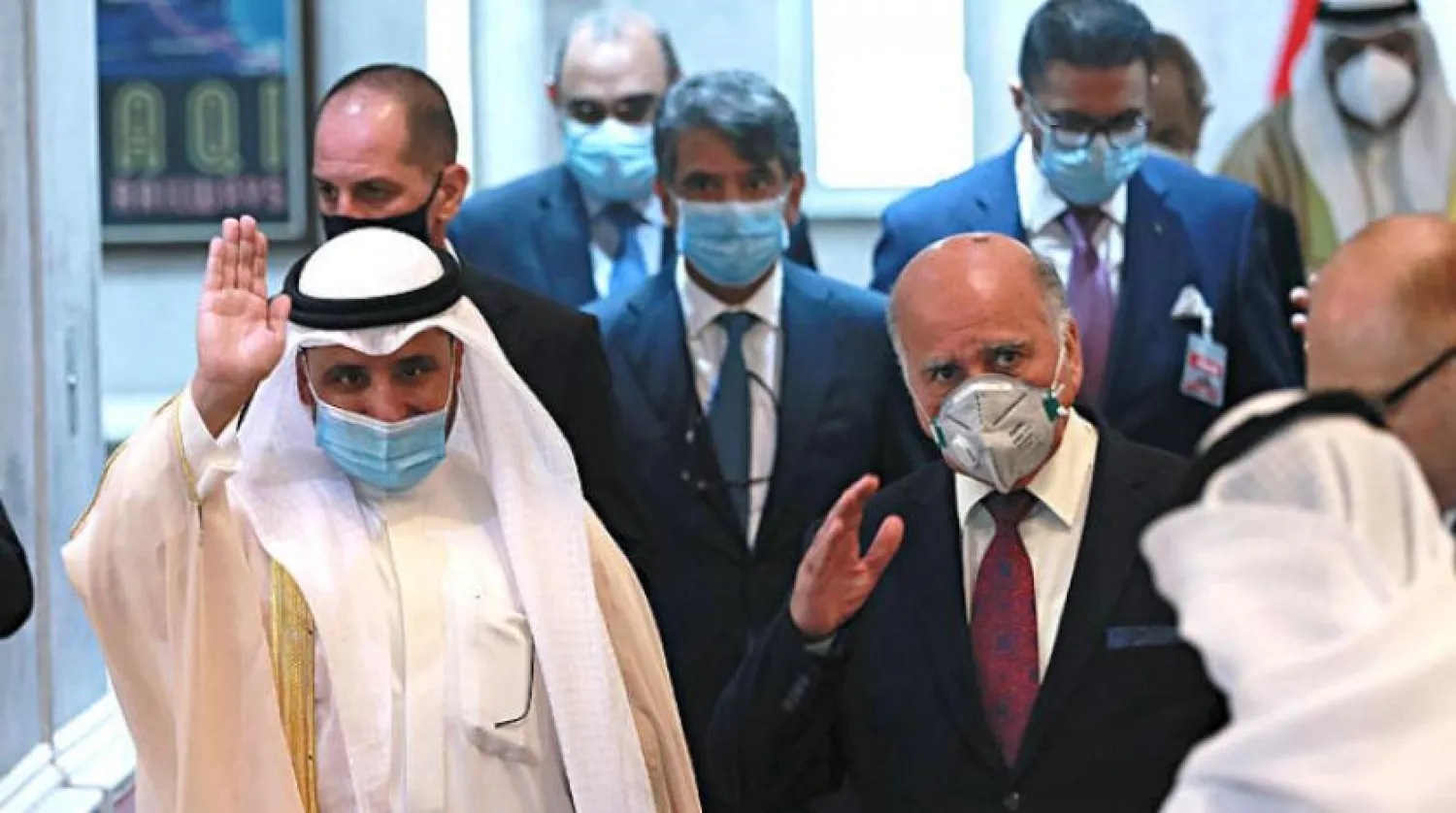Kuwaiti Foreign Minister Sheikh Ahmed Al-Nasser Al-Mohammed Al-Sabah arrived in Baghdad on Sunday on the first such visit by a high-profile Gulf official since the formation of Iraqi Prime Minister Mustafa al-Kadhimi's government on May 7.
The Kuwaiti official delivered a written message from the Emir of the country to Kadhimi on close relations between the two countries and the frameworks of their promotion and development in various fields, and a number of issues of common concern.
A statement from Kadhimi’s office said the two officials “discussed the challenges of water security and terrorism, which it described as a common challenge to countries in the region, as well as the economic crisis and the decline of global oil prices.”
The Iraqi PM stressed "the importance of strengthening security and economic cooperation between the two countries in a manner that serves the stability and prosperity of the region."
The Kuwaiti FM said that a solution to the economic crisis could come through international action and cooperation with the Gulf Cooperation Council, which Iraq can benefit from in the electricity sector.
On Sunday, the Kuwaiti minister also met with Iraqi President Barham Salih, Parliament Speaker Muhammad Al-Halbousi and Foreign Minister Fuad Hussein.
Spokesperson for the Iraqi Foreign Ministry Ahmad al-Sahaf told Asharq Al-Awsat that during their meeting Sunday, the Kuwaiti FM and Hussein discussed a number of issues, including the Iraqi-Kuwaiti joint committee, and preparations to hold a meeting for the committee at the earliest in Baghdad to discuss outstanding bilateral issues.
Iraqi political commentator Ihsan al-Shammari told Asharq Al-Awsat that this high-level visit and its timing send a message of support for Kadhimi in light of the challenges facing his government.
“Kuwait wishes to push forward pending files and place a clear roadmap to solve them,” he said. “This visit will surely benefit Iraq.”
During his meeting with the Iraqi FM, the visiting official conveyed a message from the Emir of Kuwait that the country stands with Iraq.









